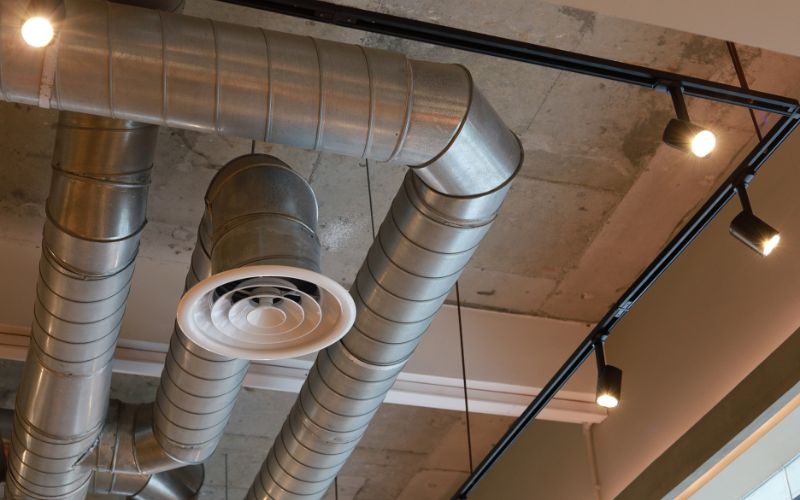Allergies can truly disrupt our daily lives, causing discomfort and health challenges. One of the primary solutions to combat this issue is by ensuring clean air indoors. The best air filters for allergies play a crucial role in eliminating allergens, making your home a safe oasis.
In this article, we will dive deep into why choosing the right air filter is essential and how it can greatly improve your living space. Our focus will be on understanding various types of air filters, their effectiveness, and which ones particularly cater to allergy sufferers.

Understanding Airborne Allergens
Before jumping into the specifics of air filters, it is key to comprehend what airborne allergens are and how they infiltrate our homes. Common allergens include dust mites, pollen, mold spores, and pet dander. These can significantly impact the air quality indoors, exacerbating allergy symptoms.
How Allergens Enter Your Home
Allergens can enter through open windows, doors, and even on your clothing or pets. Once inside, they circulate through the air conditioning system, affecting the entire home. Consequently, investing in the best air filters for allergies can halt many of these particles in their tracks.
Types of Air Filters
Choosing the best air filters for allergies depends largely on understanding the various types available:
HEPA Filters
High-Efficiency Particulate Air (HEPA) filters are renowned for their ability to trap 99.97% of particles that are 0.3 microns or larger. These filters are particularly beneficial for allergy sufferers due to their high efficiency in capturing tiny particles like pollen and dust.
Carbon Filters
Often combined with HEPA filters, carbon filters excel in removing odors and chemical pollutants from the air, making them an excellent choice for homes with specific allergy or asthma concerns. Learn more about how HVAC systems impact air quality.
Pleated Filters
These filters offer increased surface area and efficiency over flat filters. They can capture larger particles and some finer particles; however, they might not match the performance of HEPA filters in trapping the smallest allergens.
The Importance of MERV Ratings
The Minimum Efficiency Reporting Value (MERV) is a key standard for evaluating the efficiency of air filters. MERV ratings range from 1 to 20; the higher the rating, the more effective the filter. For allergy concerns, a MERV rating between 11 and 13 is often recommended.
Selecting the Right Filter for Your Home
When it comes to choosing the best air filters for allergies, several factors should guide your decision:
Household Needs
Consider the household size, presence of pets, and specific allergy triggers. These factors will help determine the appropriate filter type and MERV rating.
Filter Maintenance
Regular maintenance is crucial in ensuring your filters continue to efficiently clean the air. Be sure to follow the manufacturers guidelines on changing filters, typically every 2-3 months.
Compatibility with HVAC Systems
Not all filters are compatible with every HVAC system. It is essential to verify the compatibility of the filter with your existing system. Find out if dirty air ducts could also be exacerbating allergy symptoms in your home.
Advantages of Using Air Filters
Employing the best air filters for allergies not only enhances indoor air quality but also offers several additional benefits:
Improved Health
By removing allergens from the air, health problems such as asthma and respiratory irritation can be reduced, promoting better overall health for you and your family.
Increased HVAC Efficiency
Clean air filters contribute to better airflow, reducing strain on the HVAC system and possibly enhancing its lifespan. You might want to ensure your air duct maintenance is also up to date.
Odor Control
Many air filters help in neutralizing odors, leading to fresh indoor air and a more pleasant home environment.
Environmental Impact
Opting for filters that are environmentally friendly and minimize waste aids in reducing your carbon footprint.

FAQs About Air Filters for Allergies
How often should I replace my allergy air filter?
Generally, allergy air filters should be replaced every 2-3 months, but this varies based on usage and filter type.
Can air filters completely remove all allergens?
While they significantly reduce allergens, no filter can remove all particles. A comprehensive approach, including regular cleaning, best ensures an allergen-free home.
Are high MERV-rated filters always better?
Higher MERV ratings often mean better filtration but may not be suitable for all HVAC systems due to airflow restriction. Consult with a professional about the best option for your home.
Choosing the right air filter is vital for alleviating allergy symptoms and ensuring a healthier home environment. With advancements in technology and varied options available, finding the best air filters for allergies tailored to your needs and budget is more accessible than ever. Achieving clean indoor air is not just a dream; with the right approach, it’s a reality.
This article contains affiliate links. We may earn a commission at no extra cost to you.






